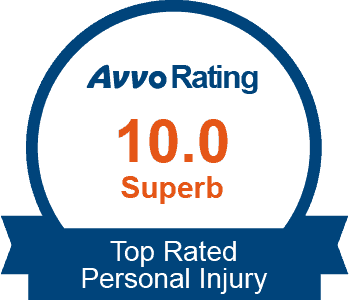
Legal Protections for Good Samaritans and What Happens If You’re Hurt While Assisting Others
When people witness an accident—whether it’s a car crash, a house fire, or a pedestrian injury—many instinctively rush in to help. It’s a natural and compassionate response. But what happens if someone gets injured while trying to help? Can they still receive compensation for their injuries? Or does stepping in voluntarily come with legal risks?
The answer lies at the intersection of Good Samaritan laws, personal injury protections, and insurance coverage. While these laws vary by state, most jurisdictions recognize that helping others during an emergency should not leave someone vulnerable to legal or financial harm—especially when their actions are reasonable and in good faith.
🚑 How People Get Injured While Assisting
Assisting at the scene of an accident can be dangerous. Some common injury scenarios include:
-
Being struck by another vehicle while pulling someone from a car
-
Slipping or falling on dangerous terrain at the accident scene
-
Being exposed to fire, broken glass, or hazardous materials
-
Sustaining a back injury while lifting a victim
-
Suffering emotional trauma from witnessing traumatic events
Even with the best intentions, Good Samaritans can face serious physical and emotional consequences—raising important questions about who pays for their injuries.
⚖️ What Are Good Samaritan Laws?
Good Samaritan laws are designed to protect individuals who voluntarily provide aid during emergencies. In most states, these laws:
-
Offer legal immunity from liability if the person trying to help accidentally worsens someone’s injuries
-
Apply as long as the aid is given in good faith, without compensation, and within the responder’s capabilities
-
Protect both medical professionals and regular citizens, depending on the jurisdiction
However, these laws do not guarantee compensation for injuries suffered by the person helping. That falls under other legal principles.
💡 Can a Good Samaritan Sue If They Are Injured?
In many cases, yes. If the Good Samaritan was injured due to someone else’s negligence—such as a reckless driver or a hazardous property owner—they may be able to file a personal injury claim. Examples include:
-
A bystander hit by a third car while helping someone after a crash
-
A volunteer injured while assisting emergency services due to poor traffic control
-
A passerby electrocuted due to an unmarked downed power line
To succeed in a claim, the injured Good Samaritan would typically need to show:
-
A duty of care existed (e.g., a driver owed reasonable caution to others at the scene)
-
That duty was breached through negligence or recklessness
-
The breach caused the Good Samaritan’s injury
-
The injury resulted in damages (medical bills, lost income, pain and suffering)
🛡️ Will Insurance Cover a Good Samaritan’s Injuries?
It depends on the situation:
-
Auto Insurance: Some policies may cover bystanders injured at a crash scene, especially under liability or med-pay coverage.
-
Health Insurance: May cover treatment costs, but not lost wages or long-term disability.
-
Homeowner’s Insurance: If a property hazard contributed to the injury, the property owner’s policy might provide coverage.
-
Workers’ Compensation: If the person was working (e.g., a delivery driver who stops to help), they might be covered under their employer’s plan.
Because coverage varies by policy and provider, consulting a personal injury attorney can help clarify what compensation is available.
❗What If the Victim or Driver Tries to Blame You?
This is rare—but possible. Some victims or drivers might argue that a Good Samaritan caused additional harm or interfered with first responders. Here’s where Good Samaritan laws are especially valuable: they provide legal immunity if the aid was reasonable and in good faith.
To protect yourself:
-
Only provide help you’re qualified to give
-
Avoid moving someone unless they’re in immediate danger
-
Call emergency services first
-
Document what you saw and did, if possible
✅ Final Thoughts: Doing the Right Thing Shouldn’t Leave You Unprotected
Helping at an accident scene is a noble and courageous act—but it can come with unintended consequences. Fortunately, the law provides protections for Good Samaritans, and injury claims are still possible when someone else’s negligence causes harm—even if you were just trying to help.
If you were injured while assisting at an accident scene, speak with a personal injury attorney. You may be eligible for compensation to cover your medical bills, lost income, and more. Your kindness should not cost you your health—or your financial future.






